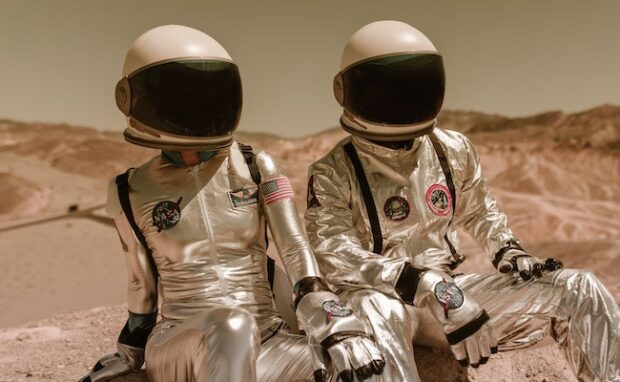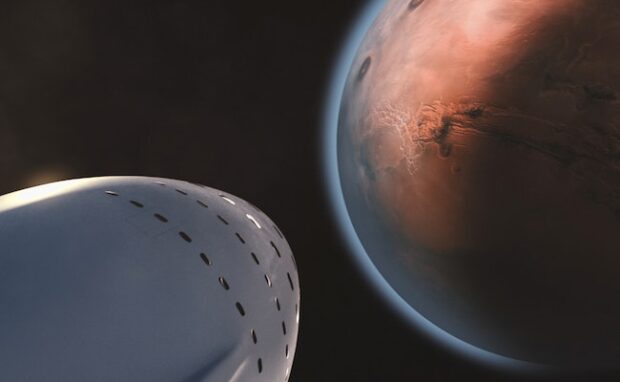How many astronauts do we need for a Mars colony?
Scientists recently discovered the minimum number of astronauts required to maintain a Mars colony is 22. Previous estimates suggested a human settlement on the Red Planet would require 100 to 500 people due to its complexity. However, George Mason University researchers determined a lower estimate after considering human behavior.
You may not notice it, but the space race continues worldwide. More countries are trying to reach the stars, and more intrepid ones want to take a step further by having humans live on another planet. Soon, our world may expand to outer space, so we should see what that future might look like.
This article will elaborate on George Mason University’s Mars colony research. Then, I will share similar projects exploring the possibility of living on another planet.
Why is 22 people enough for a Mars colony?

Let’s start by explaining previous research about manning a Mars colony. The Independent says past studies calculated 100 to 500 astronauts because it will be an “incredibly complex engineering problem.”
The Red Planet is inhospitable, so a Mars colony must protect people from its harsh conditions. For example, it must provide enough oxygen and shield against radiation.
The news outlet says a space colony could separate hydrogen atoms in Martian water to create breathable air and viable fuel. Moreover, the settlers must mine minerals to produce other necessities.
However, new research from George Mason University discovered a Mars colony may only need 22 to function. They derived a lower estimate after factoring in psychological factors.
Edgar Arguello and his colleagues analyzed previous data on high-performing teams in isolated and high-stress environments. These included submarine crews, Arctic explorers, and international space station scientists.
The GMU scientists ran a computer simulation called Agent-Based Modeling to analyze complicated systems and predict larger patterns. Also, they created models for Martian settlers with different factors like resilience, skills, and metabolism.
Each model has one of four psychological traits: agreeable, social, reactive, and neurotic. Then, they used ABM to simulate human survival on Mars under different working conditions.
You may also like: NASA is developing an AI chatbot for astronauts
For example, they tested how a Mars colony would respond to delays in Earth resupplies. Moreover, the colonist models could have deteriorating health and die without enough resources.
The GMU researchers had five trials lasting 28 years, with population sizes ranging from 10 to 170. As a result, they discovered that “an initial population of 22 was the minimum required to maintain a viable colony size over the long run.”
They also concluded the “agreeable” personality type characterized by great empathy was more likely to survive in a Mars colony. Conversely, “neurotic” people died faster.
What are the other space colony projects?
As I said earlier, the space race has been expanding lately as more countries launch space exploration projects. For example, India recently became the fourth country to land on the Moon.
Hence, seeing more organizations try to establish Mars colonies is not surprising. For example, the National Aeronautics and Space Administration has been developing new technologies to help humans live in outer space.
In June, NASA created a water recovery system with 98% efficiency. It turns air moisture and urine into potable water for astronauts to last longer in outer space without Earth resupplies.
In July, it deployed a humanoid robot to oversee oil rigs for Woodside Energy in Western Australia. Here’s how the space agency described its objectives:
“NASA plans to leverage experience operating Valkyrie in Woodside’s facilities to learn how to better design robots for work in dirty and hazardous conditions, like those found on the Moon at the long-term worksites and habitats that will be established as part of future Artemis missions.”
You may also like: NASA Mars copter succeeds first flight
Last month, the research organization started the Crew Health and Performance Exploration Analog. CHAPEA encloses researchers in Mars colony simulations for a year.
NASA will run these year-long tests three times to determine how to prepare astronauts for settling on another planet. Believe it or not, the modern space race is akin to the Cold War following WWII.
The United States and China are racing to establish colonies on the Moon. Consequently, the Defense Advanced Research Projects Agency (DARPA) and NASA partnered to build space infrastructures that could be part of a Mars colony, too.
Conclusion
George Mason University researchers estimated that 22 astronauts are enough to sustain a Mars colony. They derived a lower estimate than previous findings, which required 100 to 500 people.
The GMU experts got that number after considering human behavior. After all, starting a new society anywhere requires different people to collaborate.
The latest space technologies still require people willing to work together to build something greater than themselves. Learn more about those space innovations and other digital trends at Inquirer Tech.
